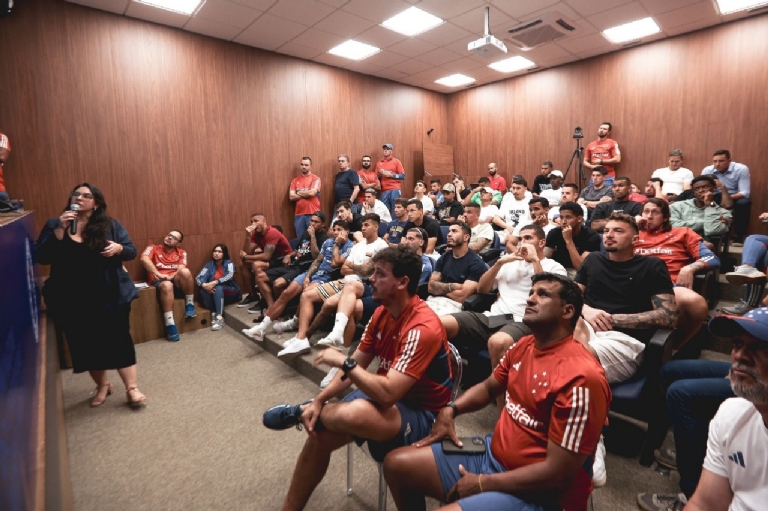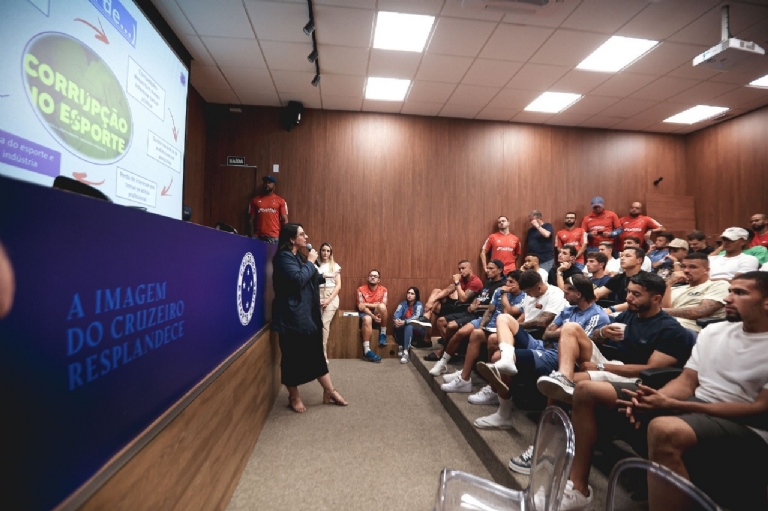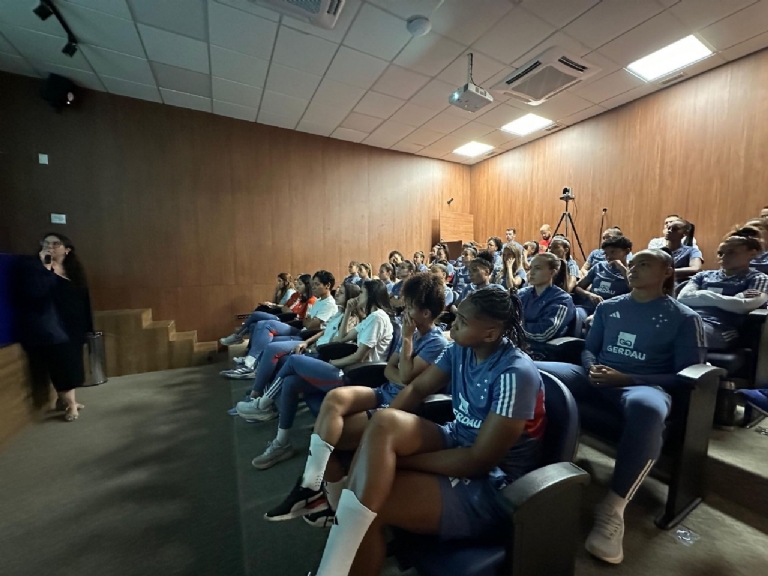

“I was very happy to once again visit Toca 1 and 2 and to deliver another project. This time, it was the update of the Code of Ethics and policies, which I had the opportunity to help build nearly two years ago,” said lawyer Mariana Chamelette after the event.

The fight against match-fixing in sports has been the focus of several lectures and meetings organized by sports entities, clubs, and associations, aimed at ensuring integrity and curbing the spread of illicit acts that tarnish the sport.
The discussion at Cruzeiro was highly enriching in clarifying doubts on the subject and reinforcing the importance of maintaining honesty in the sports environment. Some of the topics discussed included ways in which athletes are approached for match-fixing and the damage caused to the unpredictability of the games, as well as encouraging athletes to report any such approaches.
One of the main proponents of the lecture was lawyer Marina Drummond Machado, a governance and compliance specialist at Cruzeiro. The club has been promoting discussions on the fight against match-fixing for over two years, holding meetings between athletes, coaching staff, and specialists in the field.

Discussions like those that took place at the event reinforce the importance of presenting the sports ecosystem with critical information about the dangers and consequences of match-fixing for shady benefits in sports betting.
By raising awareness among athletes and emphasizing the need to ensure integrity in sports, the sports community is encouraged to make ethical decisions and reject illicit approaches.
The sports betting market has promoted education as one of the main ways to combat match-fixing. Companies such as Sportradar and Genius Sports, which specialize in the subject, have been key players in educating athletes about the harms of match-fixing.

Entities like the International Betting Integrity Association (IBIA), which operates globally, and the Brazilian Association for the Defense of Sports Integrity (Abradie) have also been actively involved in disseminating policies to ensure that sports are not tarnished.
The topic gained national attention with the "Penalidade Máxima" operation by the Public Prosecutor's Office of Goiás, which led to the creation of Parliamentary Inquiry Commissions (CPI) in the National Congress to investigate the actions of criminals and the involvement of athletes in match-fixing in football.
At no point was the involvement of sports betting companies in criminal practices proven. In fact, they are also harmed by illegal activity, as they are forced to pay out prizes that do not reflect the reality of a clean bet.
Source: GMB